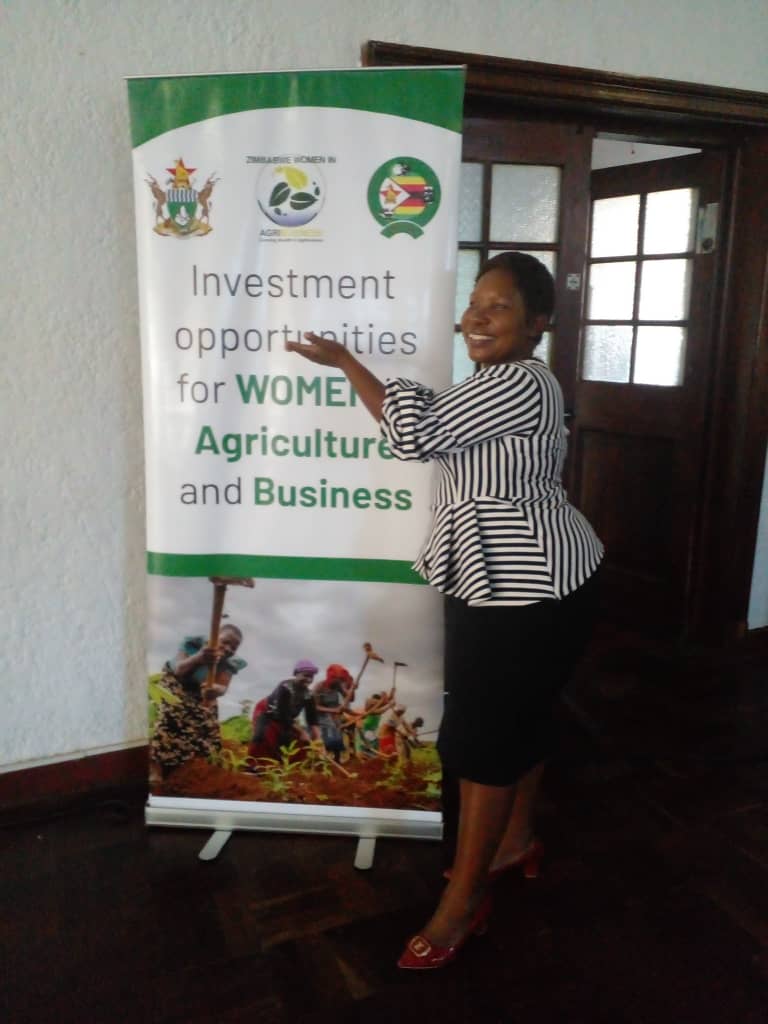|
Getting your Trinity Audio player ready…
|
As the global world embraces the empowerment of women through the theme ‘Global Innovation’, Zimbabwe Women in Agribusiness in collaboration with the Ministry Of Women Affairs, Community DEVELOPMENT, and Small and Medium Enterprise and Zimbabwe National Chamber of Small to Medium Enterprise is today conducting a workshop under the theme: INVESTMENT OPPORTUNITIES FOR WOMEN IN AGRICULTURE AND BUSINESSES.
The workshop is being attended by at least 200 participants who have been invited to meet and connect with relevant stakeholders in the related value chain in line with NDS1 and NFS11.
In his address, Tendai Nyamadzawo, Provincial Development Officer from the Ministry of Women Affairs, Community, Small, and Medium Enterprise Development for Mashonaland East Province said the workshop seeks to give information to women and SMEs about available opportunities, both local and external, in the agriculture and manufacturing sectors.
“These sectors face a lack of access to information in terms of what product to focus on, what quantities to grow or produce, and where the markets are. With this lack of information, one can start a business but the enterprise usually collapses because of lack of access to markets, poor product quality, and lack of access to finance,” Mr. Nyamadzawo said.
To address these gaps, the Ministry of Women’s Affairs has come up with a number of initiatives. These include facilitating the registration of companies, providing training on business management, facilitating market linkages, as well as linkages with other stakeholders like banks, lending institutions, and export promotion entities like ZimTrade.
The ministry is also raising awareness of the role of ZIMRA in promoting tax compliance.
“We are demystifying the perception and myths that ZIMRA tax thresholds are out of reach for SMEs. The fear causes many businesses to remain informal yet there are flexible terms and conditions. One can actually register a business and engage ZIMRA without facing any complications. They can negotiate a payment plan,” he added.
The workshop unpacked opportunities for funding in agribusiness. Many financial institutions that provide funding to SMEs are present at the workshop. These include NedBank, Small, and Medium Enterprise Development Corporation, NMB Bak, Ecobank, Agriculture Finance Corporation (AFC), POSB, ZB Bank, and Women’s Bank.
Nomuhle Bangani, the Progamme Coordinator for Zimbabwe Women in Agribusiness said the institution supports policies crafted by policymakers and regulators and links farmers and stakeholders to get together in conferences like this one where they meet and connect.
“The reason is to give opportunities to women in agribusiness to understand the policies and what is expected of them in order for them to improve their businesses from small-scale to medium-scale.
“We are also encouraging the farmers and SMEs to register their businesses and grow from small-scale to large-scale. Once they are captured in the database, it’s easier for them to access funds and opportunities in agriculture and other entities,” Ms. Bangani said.
Mantissa Mazoyo, Provincial Mechanisation Engineer in the Ministry of Lands, Agriculture, Fisheries, Water, and Rural Development for Mashonaland East said such a workshop is important in that it is informing and equipping SMEs in the use of labour-saving technologies.
“The use of machinery in agricultural production is key in improving production and productivity hence increasing income. Farmers can achieve more production volumes through the use of machinery. In addition, the use of machinery reduces post-harvest losses as well as reduces food handling thus promoting food safety. Furthermore, the processing of agricultural produce or value addition also improves income for the farmers,” Mazoyo said.
The Ministry of Lands, Agriculture, Fisheries, Water, and Rural Development through the Department of Agricultural Engineering, Mechanisation, and Soil Conservation also has technologies that reduce the use of chemicals during product storage such as metal silos and hermetic storage bags. This also attracts export markets that are against the use of chemicals.
Dr. Jean Mandewo, Lecturer and coordinator of Gender Studies at the Women’s University in Africa the workshop said gives the university the opportunity to share what programmes it offers women and entrepreneurs.
“One of our former students Edith Matema acquired her first degree at the Women’s University in the faculty of agriculture. She went on to do a master’s Degree in South Africa and now currently pursuing a Ph.D. in Sustainable agriculture at the University of Free State. She has made us proud because she is giving back to the community,” Dr. Mandewo said.
She added that the workshop gives opportunities for collaboration with participating institutions. The Women’s university has a gender diversity centre that offers short courses, advocacy, and research on issues that
In an interview with Spiked Online Media, Matema said she is the founder of the Zimbabwe Women’s Kraal, an organisation targeting agribusiness and mining activities for women and youth locally, regionally, and internationally.
“I am going to establish Qunoia Association that is meant to grow and add value to the kraal. The quinoa crop is a superfood,” Matema said.
